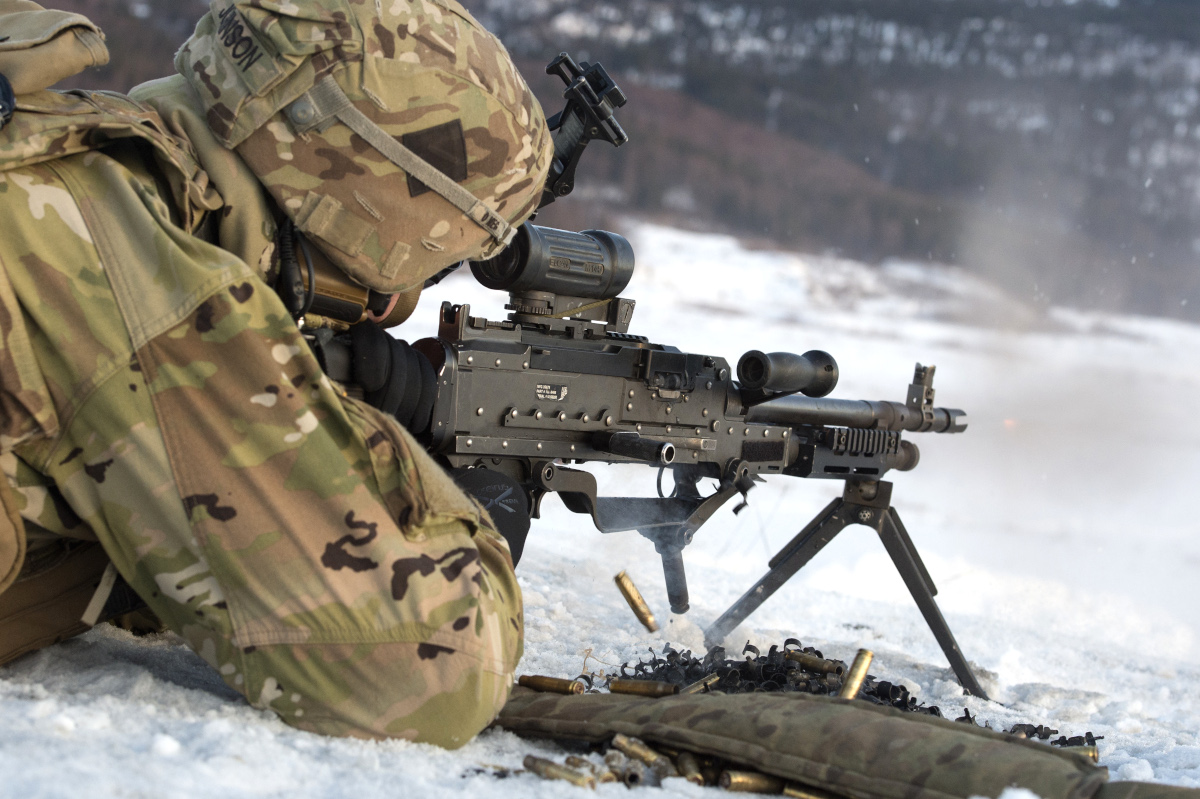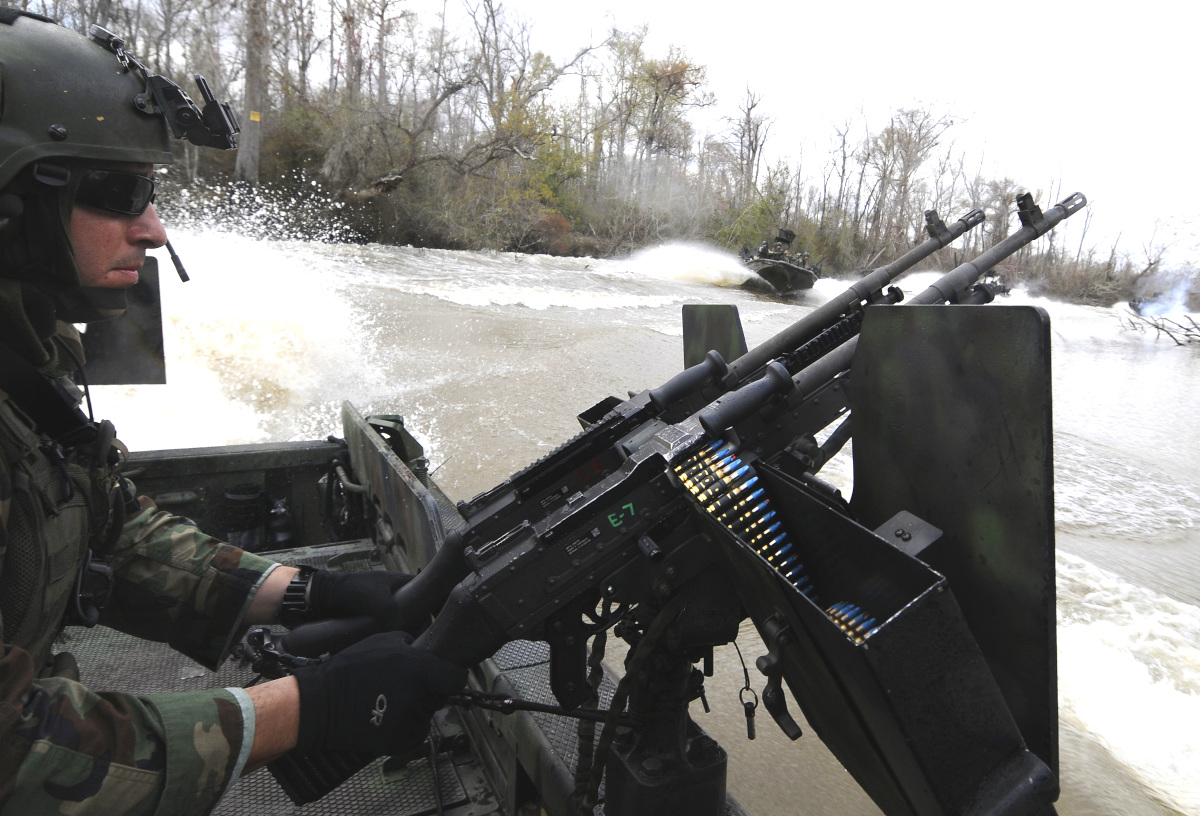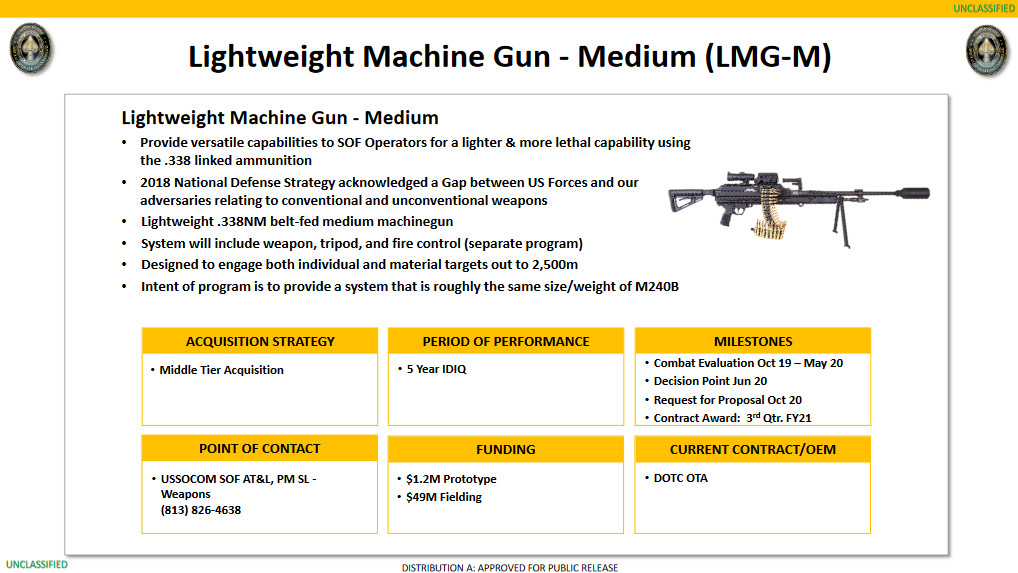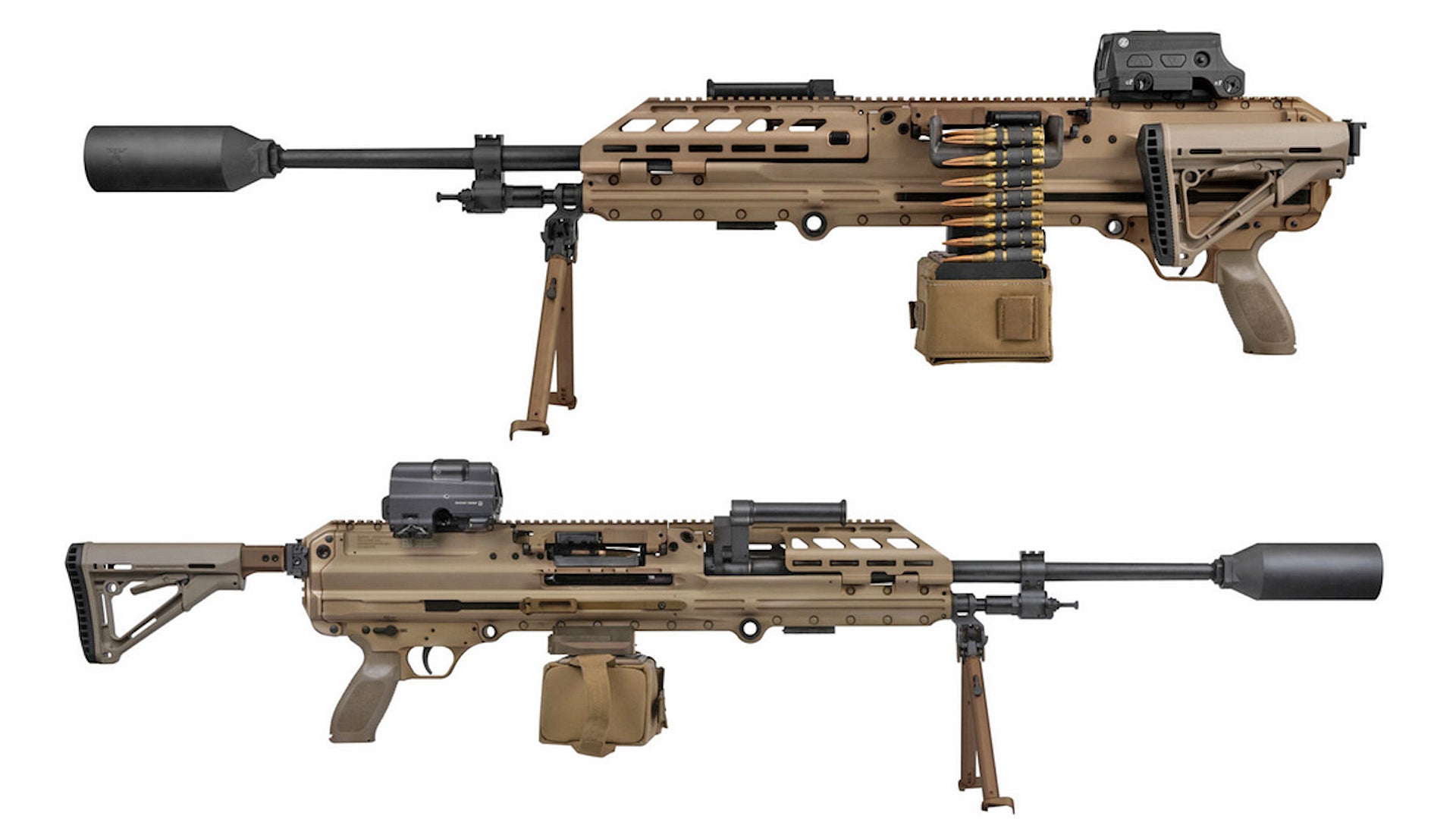Gunmaker Sig Sauer says it has delivered a number of its MG 338 machine guns to U.S. Special Operations Command, along with sound suppressors and ammunition for them, after the weapons passed an important safety certification. Two years ago the Command, in cooperation with the U.S. Marine Corps, first announced it was looking to buy new machine guns chambered for the .338 Norma Magnum cartridge, typically used in sniper rifles, to fill a gap in capability between existing 7.62mm and .50 caliber types.
Sig Sauer announced that the MG 338 had successfully met U.S. Special Operations Command’s (SOCOM) safety requirements on Jan. 15, 2020. In May 2019, SOCOM said it would begin a limited user evaluation of prospective .338 Norma Magnum machine guns in October of that year. That testing, which may include limited combat trials, is supposed run through May of this year, after which the command will make a formal decision about whether it wants to proceed with the program, which it has officially dubbed the Lightweight Machine Gun-Medium, or LMG-M. SOCOM has also begun acquiring new “assault” machine guns in the 6.5mm Creedmoor caliber that will meet a similar requirement for a weapon better suited to engaging targets beyond the range of existing 5.56mm types and traditional 7.62mm designs.
“For the first time in decades the U.S. Military certified a new machine gun, ammunition, and suppressor at the same time, bringing new innovation, portability, and increased lethality to our ground forces, with all components coming from one company,” Ron Cohen, Sig Sauer’s President and CEO, said in a statement. “This certification was achieved following the outstanding performance of the complete MG 338 system through the rigors of the extensive function, durability, and safety tests set forth by USSOCOM.”

Sig Sauer says its new .338 caliber machine gun weighs around 20 pounds, making it lighter than even the L variant of U.S. military’s standard 7.62mm M240 machine gun, which uses titanium components to reduce its weight. This would also make it lighter than the Mk 48 machine gun, which SOCOM previously led the development of as a lighter-weight alternative to the M240-series. It is also substantially lighter than the M2 .50 caliber machine gun.
Despite its lightweight design, the MG 338 will also be able to effectively engage targets significantly further away than existing 7.62mm types. SOCOM has set its effective range requirement for the machine guns at between 6,500 and 8,200 feet. By comparison, the maximum effective range of the M240L is around 5,900 feet, according to the manufacturer.

To help handle the strain of firing the more powerful ammunition in a lighter-weight package, the MG 338 also features a recoil mitigation system that includes a barrel that shifts backward with each shot to absorb some of the force. It also has a relatively slow rate of fire of around 600 rounds per minute to help keep it controllable.
Sig Sauer says that the MG 338’s controls, such as the charging handle and safety lever, are ambidextrous and that it can be configured to feed its belted ammunition from the left or the right side of the gun. This could help allow it to be mounted in various positions on ground vehicles and watercraft, including on mounts designed to hold multiple guns at once. It could also readily serve as a helicopter door gun.

The MG 338 can be converted to fire 7.62mm ammunition, as well. This would allow special operators to conduct various types of general training, such as basic familiarization with the gun and its controls, without having to use more expensive .338 Norma Magnum ammunition.
SOCOM plans to decide in June whether or not to proceed with its plans to actually acquire machine guns in this caliber. If it does move ahead with the program, a formal request for proposals would go out later this year. Sig Sauer would not necessarily be alone in that formal competition.

General Dynamics Ordnance and Tactical Systems was among the first to propose the idea of a .338 caliber machine gun and has been working on prototypes of what it calls the Light Weight Medium Machine Gun, or LWMMG, since at least 2009. It introduced a new, improved version just last year as part of its own submission to SOCOM’s limited user evaluation.

Whatever design wins the final LMG-M contact, which SOCOM says it could award in 2021 and could result in the purchase of as many as 5,000 of the guns, could lead to additional immediate sales. As noted, the U.S. Marine Corps has been involved in this project since at least 2017. Sig Sauer has said that it might look to pitch the gun to the U.S. Army, too, which is in the process of testing a slew of new small arms as it looks to replace various existing systems, such as the M4 carbine and the M249 Squad Automatic Weapon. The winner of the LMG-M deal would also be well poised to market their winning design overseas to any country with similar requirements.
Sig Sauer has already been making significant inroads in the U.S. military, most notably winning the contract to produce the new standard issue pistol for the U.S. Army, a design now slated to become the default sidearm across all the services. The company is also competing in the Army’s competition to replace the M4 and M249.

In addition, Sig Sauer has already secured a different SOCOM contract for a new personal defense weapon, called the Rattler, which is derived from its increasingly popular MCX rifle line. You can read about in more detail about that gun in this past War Zone story.
Hopefully, as SOCOM’s limited user evaluation continues, we will get more details about special operators’ experiences with the MG 338, as well as any other competing designs, which could give them valuable longer-range firepower in the coming years.
Contact the author: joe@thedrive.com
